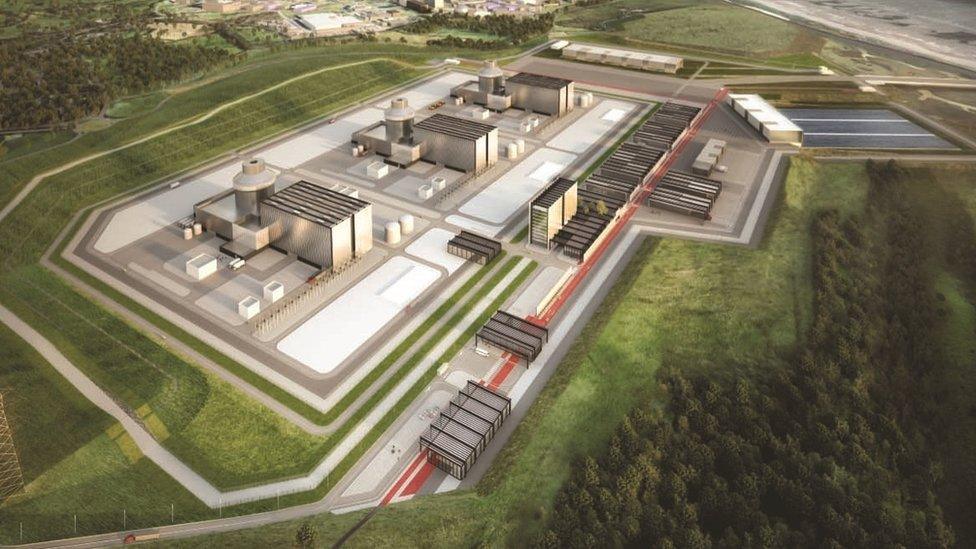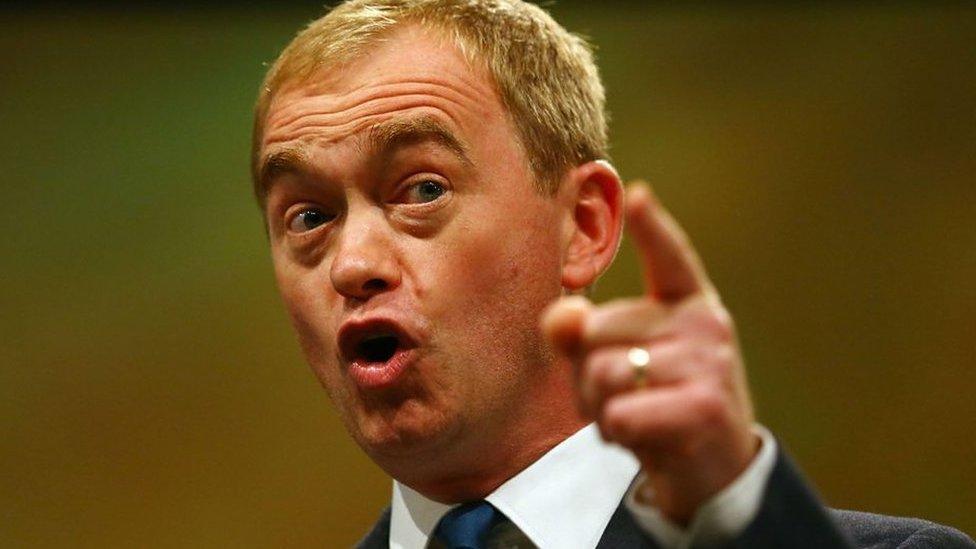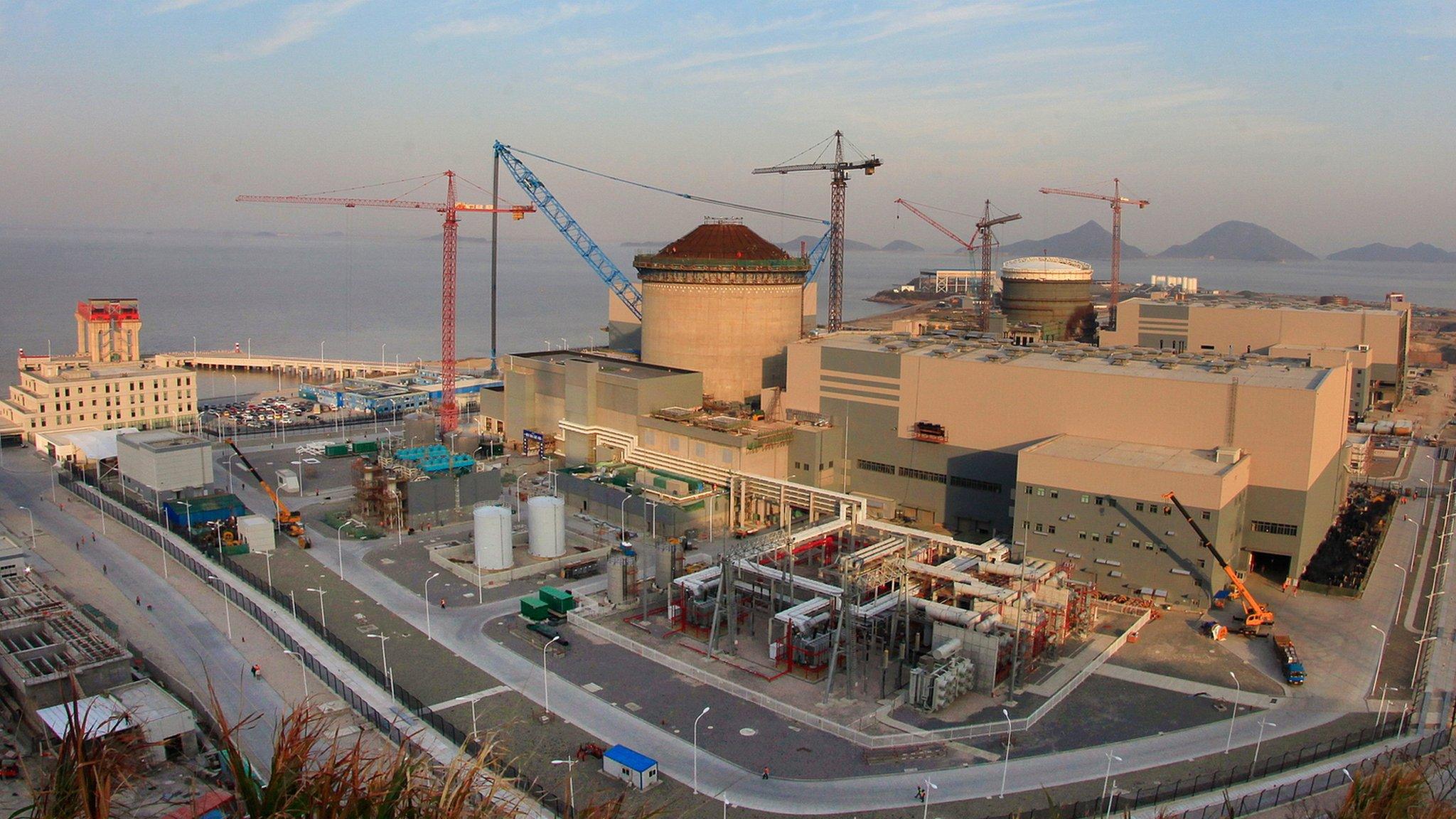Toshiba 'still developing' Moorside nuclear plant
- Published

The Moorside plant is set to open in 2024
Toshiba says it will continue to work on the development of a nuclear power station in Cumbria but will not be involved in its construction.
Uncertainty shrouded Moorside, near Sellafield, as it was thought the corporation would withdraw from all nuclear operations outside Japan.
It follows heavy losses sustained by Toshiba over the past year.
However, it says it will retain its role in the initial phase of Moorside before looking to sell its stake.
The Japanese corporation has a 60% share in NuGen, the firm behind the scheme.
The development phase includes involvement in areas such as public consultations, the planning process and licensing the reactor design in the UK.
Toshiba president Satoshi Tsunakawa told reporters in Tokyo his firm remained involved in the scheme "with the condition that we don't take responsibility over construction work".
In a statement, NuGen said Toshiba "remains committed" to developing the project and that it has made "significant progress since Toshiba took over as major shareholder in 2014".
A spokesman told the BBC Toshiba had never committed to building the plant.
Business and political leaders had warned the firm's total withdrawal from the £10bn project would have had significant implications for the county.
Speaking on Monday, Liberal Democrat leader Tim Farron, the MP for Westmorland and Lonsdale in Cumbria, said it would be a "hammer blow" for the region if the firm cancelled its planned investment.
Describing the nuclear industry as "the backbone of the local economy", he added such a move would risk "hurting the livelihoods of thousands of people".

Tim Farron called for the government to urgently intervene to secure investment
Chris Jukes, the GMB union's senior officer for Sellafield, had called on the government to commit to providing funding in the event of the company pulling out.
He said: "New infrastructure, new roads, better railways, demand for housing, health and school places, would all follow a brand new power plant.
"All of these can fuel employment and keep skills in the area."
The plant, one of the "next generation" of UK nuclear power stations, is expected to provide electricity for six million homes.

Analysis: Bob Cooper, Political Reporter, BBC Radio Cumbria
The nuclear industry is crucial to West Cumbria's economy.
More than 10,000 people work at the Sellafield reprocessing site and thousands more in the nuclear supply chain.
Moorside is seen by many as a vital investment in the area - although it is not without its detractors on environmental grounds.
Last week the Business and Energy Secretary Greg Clark was in West Cumbria and he told me the government was totally committed, despite recent uncertainty.
The Conservatives have put great emphasis on their support for the nuclear industry in the campaign for the upcoming Copeland by-election.
They see it as a weakness for Labour, with Jeremy Corbyn having previously opposed nuclear power.
But now the Labour leader has come out in favour of Moorside and Greg Clark's shadow Rebecca Long-Bailey has called for the government to invest public money to rescue the project if necessary.
UKIP and the Liberal Democrats are also strongly supportive of Moorside, as are the two independent candidates standing in Copeland.

- Published14 February 2017

- Published15 July 2015
